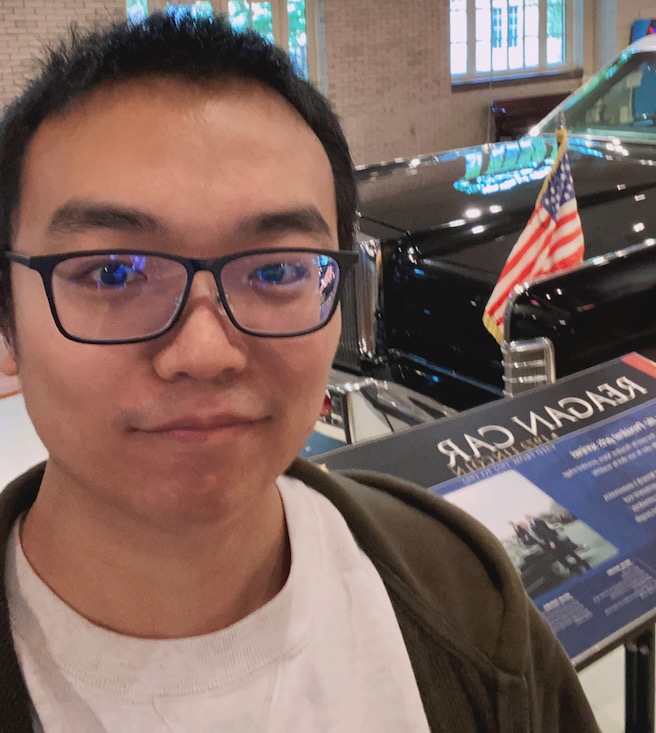I’m a PhD student at the Laboratory of Machine Learning & Health Informatics at the Computer Science and Engineering Department, University of Connecticut, advised by Prof. Jinbo Bi.
My research interests lie primarily in reinforcement learning (focusing on deep stochastic contexture bandit problem and Monte Carlo tree search) and deep neural networks-based recommendation system with an emphasis on self-attention module, click-through rate prediction, and diagnosing model of alcohol/nicotine use disorder. I’ve been trying to develop a dataset distillation method to train a large language model-based recommendation system efficiently.
Experience
01/2018 - Present, Research Assistant, University of Connecticut, US
Research interests: Explainable deep neural networks-based recommendation system, reinforcement learning, and deep learning for MRI diagnostics.
09/2014 – 01/2017, Research Assistant, Northeastern University, Shenyang, PR China
Thesis: Research and Application of Algorithm on Knowledge Learning from Expert Game Records of Go
Selected Publications (7 out of 18)
Polyhedron Attention Module: Learning Adaptive-order Interactions
Tan Zhu, Fei Dou, Xinyu Wang, Jin Lu, Jinbo Bi. NeurIPS 2023, (A+ conference, acceptance rate: 26.1%)
Machine Learning of Functional Connectivity to Biotype Alcohol and Nicotine Use Disorders
Tan Zhu, Wuyi Wang, Yu Chen, Henry R Kranzler, Chiang-Shan R Li, Jinbo Bi. Biological Psychiatry: Cognitive Neuroscience and Neuroimaging, 2023, (Q1 journal, IF: 5.9)
On-Device Indoor Positioning: A Federated Reinforcement Learning Approach With Heterogeneous Devices
Fei Dou, Jin Lu, Tan Zhu, Jinbo Bi. IEEE Internet of Things Journal, 2023, (Q1 journal, IF: 9.9)
Identifying Alcohol Misuse Biotypes from Neural Connectivity Markers and Concurrent Genetic Associations
Tan Zhu, Chloe Becquey, Yu Chen, Carl W. Lejuez, Chiang-Shan R. Li, Jinbo Bi. Translational Psychiatry, 12(1), 253, 2022, (by Nature Publishing Group, Q1 journal, IF: 7.9)
Federated Optimization of ℓ 0-norm Regularized Sparse Learning
Qianqian Tong,Guannan Liang, Jiahao Ding, Tan Zhu, Miao Pan, Jinbo Bi. Federated Optimization of ℓ 0-norm Regularized Sparse Learning. Algorithms, 15(9), 319, 2022, (Q2 journal, IF: 2.3)
An Efficient Algorithm for Deep Stochastic Contextual Bandits
Tan Zhu, Guannan Liang, Chunjiang Zhu, Haining Li, Jinbo Bi. AAAI 2021, (A+ conference, acceptance rate: 21.4%)
Communication-optimal Distributed Dynamic Graph Clustering
Chun Jiang Zhu, Tan Zhu, Kam-Yiu Lam, Song Han, and Jinbo Bi. AAAI 2019, (A+ conference, acceptance rate: 16.2%)
Working Papers
Identifying Shared Neural Markers Across Positive and Negative Valence for Depression and Anxiety
Tan Zhu, Chen Yu, Chiang-Shan Ray Li, Jinbo Bi
Identifying Interactions among Categorical Predictors with Monte-Carlo Tree Search
Tan Zhu, Fei Dou, Chloe Becquey, Jinbo Bi (In Preparation, Preprint Version Available Online)
Projects
Polyhedron Attention Module: Learning Adaptive-order Interactions
- Design and implement a module called Polyhedron Attention Module (PAM) for deep neural networks to explicitly model the interaction effects among the model’s inputs on the model’s output. Results have been published in NeurIPS 2023 (Acceptance rate: 26.1%) .

- Our module splits the input space into subspaces (polyhedrons) and adaptively learns different interactive terms in each subspace. An input sample will be assigned to one or more subspaces, and interactions learned in these subspaces were used to predict the targets. Theoretic analysis shows that our module has stronger expression capability than ReLU-activated networks.
Click to see the example

- Our model has state-of-the-art performance on massive datasets of the click-through rate prediction, a critical machine learning problem in the recommendation system.
Click to see the result in our paper
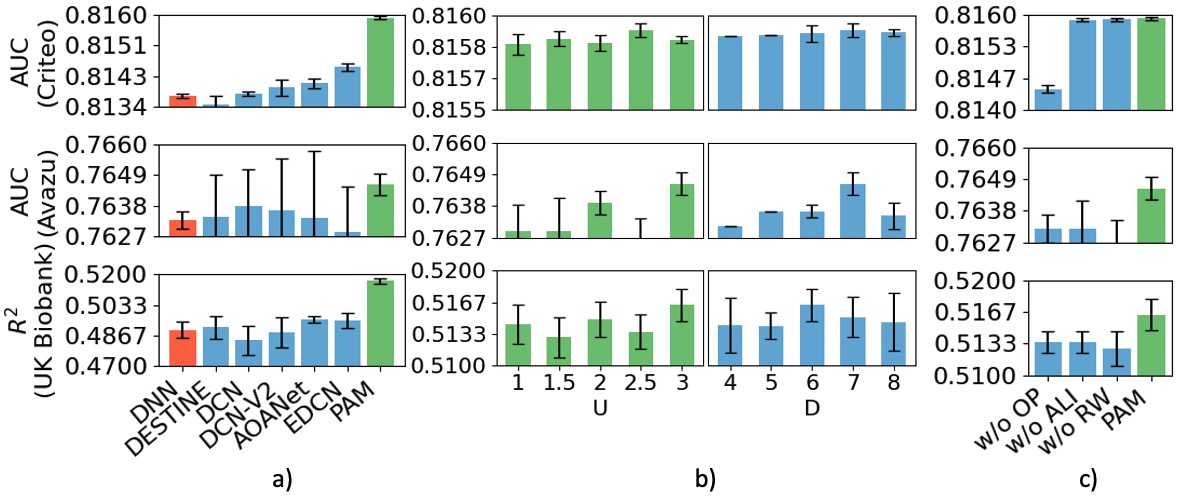
- Our module is interpretable to identify important interactions in predicting a target. Experiment shows that our module can learn meaningful interaction effects in a medical problem (predict brain age with brain image).
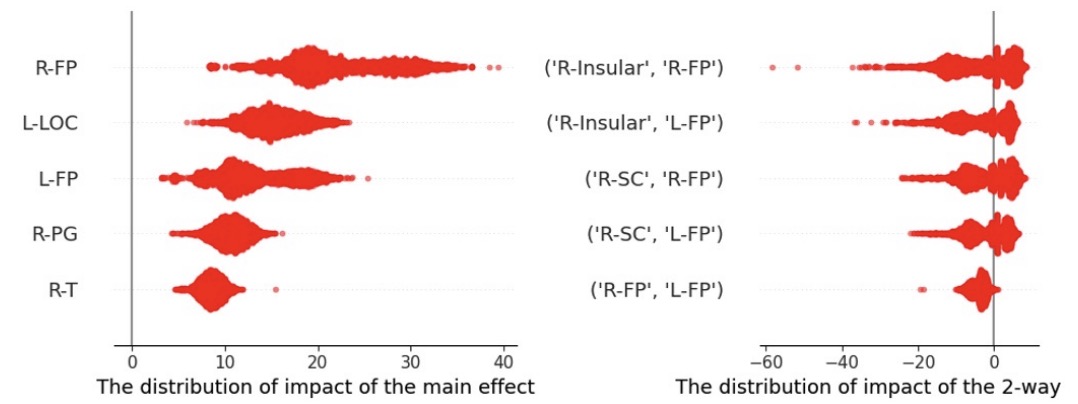
An Efficient Algorithm for Deep Stochastic Contextual Bandits
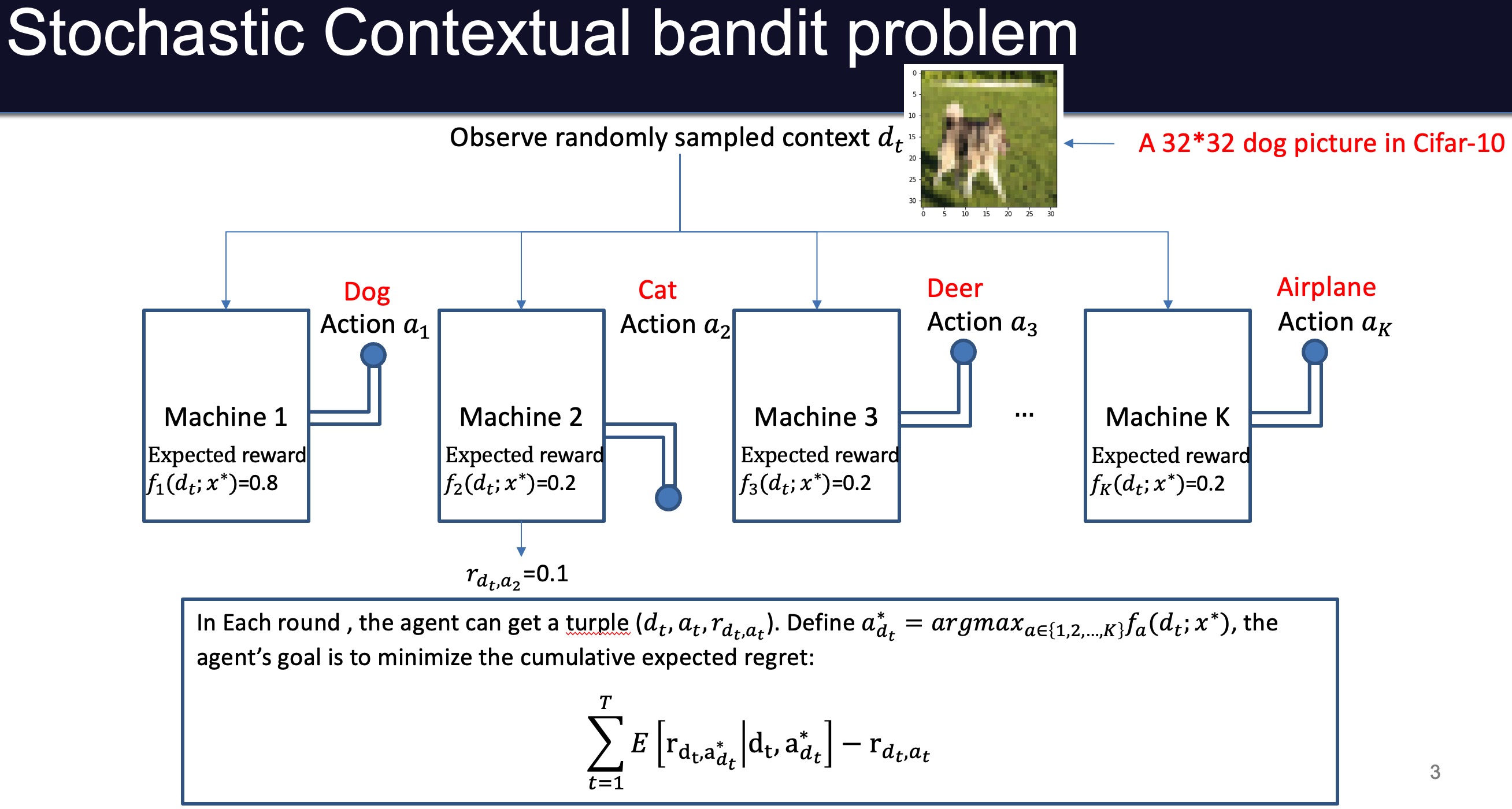
- We formulate a stage-wised optimization algorithm for deep stochastic contextual bandits problem. Results have been published in AAAI 2021 (Acceptance rate: 21.1%) .
Click to see the pseudocode

- We prove that with high probability, the action sequence chosen by this algorithm converges to a greedy action policy respecting a local optimal reward function.
Click to see our theory conclusion in the published paper

- Extensive experiments have been performed to demonstrate the effectiveness and efficiency of the proposed algorithm on multiple real-world datasets.
Click to see the result in our paper
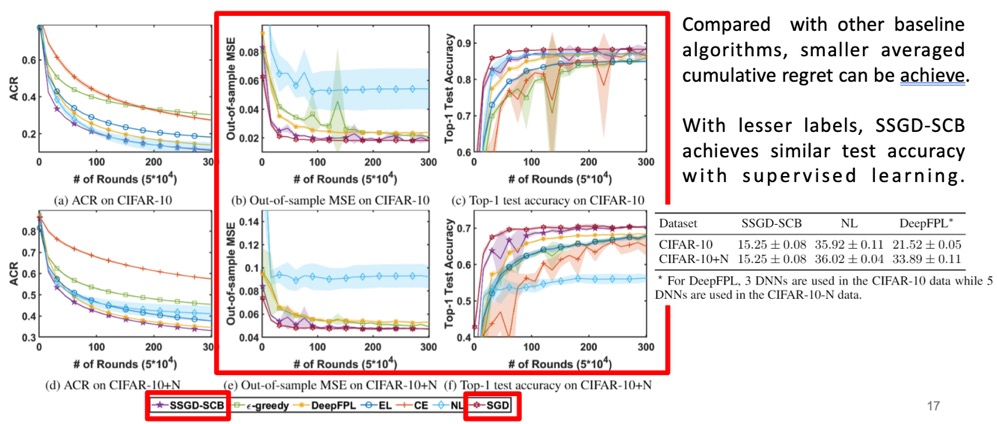
Diagnosing Addictions with Artificial Neural Networks utilizing the knowledge of substance use biotypes
- Design and implement the clustering pipeline to generate substance-use biotypes based on functional connectivity features (FCs) in the Functional magnetic resonance imaging (fMRI) matrix.
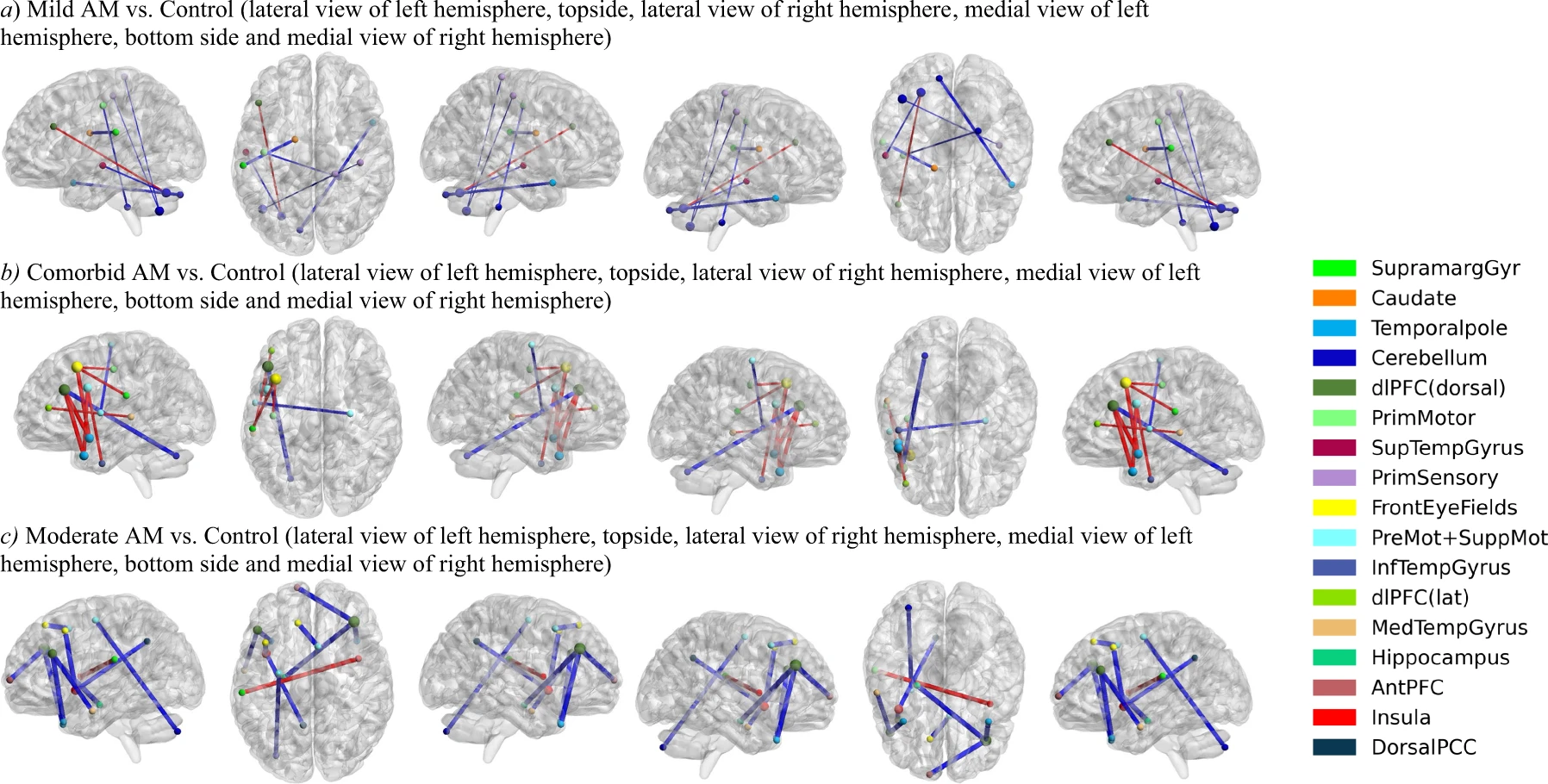
- Propose novel Artificial Neural Networks (ANN) diagnosing addictions with FCs of fMRI.
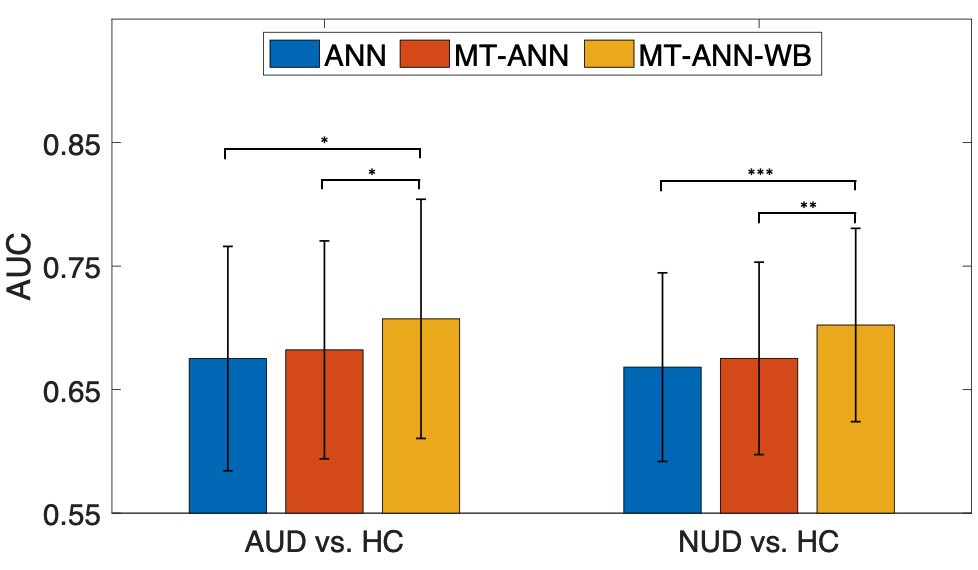
Click to see the architecture of the ANN
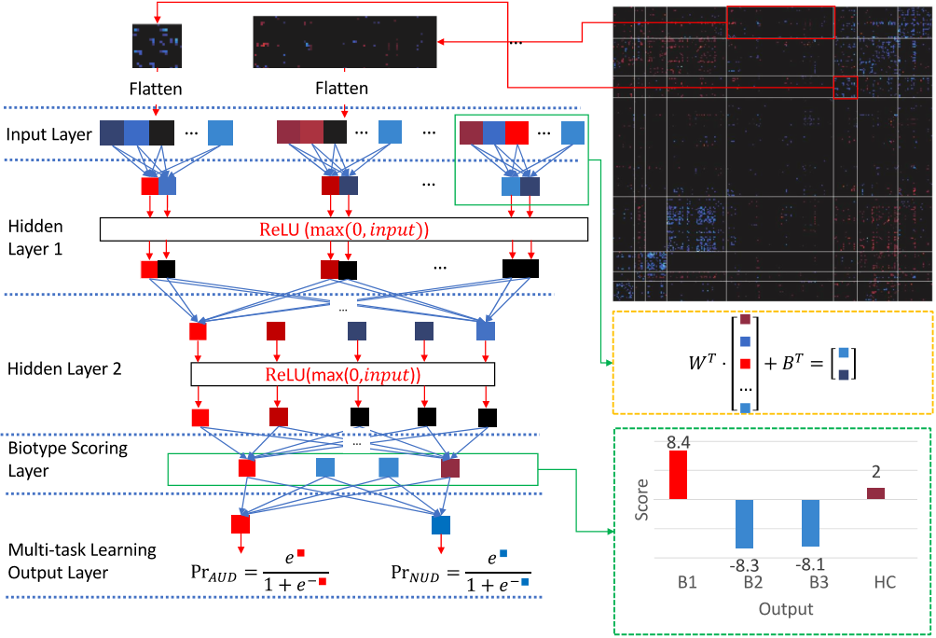
- Results have been published in Translational Psychiatry (Nature Communications, Q1 journal) and Biological Psychiatry: Cognitive Neuroscience and Neuroimaging (Q1 journal).
Contact
Email: tan.zhu@uconn.com
